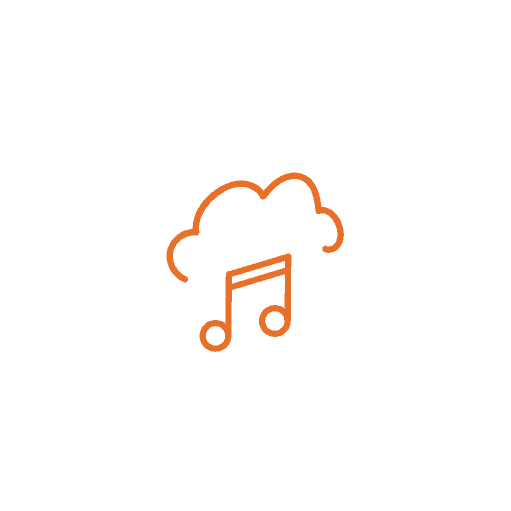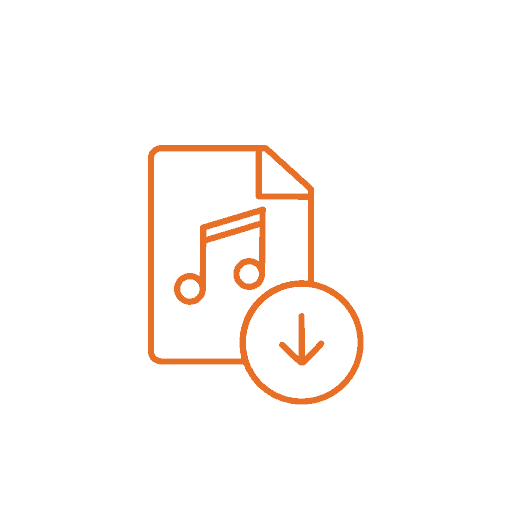Social Reintegration Following an NMOSD Diagnosis
September 30, 2024
In the “ABCs of NMOSD” episode titled, “Social Reintegration Following an NMOSD Diagnosis,” Landy Thomas of SRNA and Kim Jackson-Matthews discussed social reintegration following an NMOSD diagnosis [00:00:14]. Kim shared her diagnosis story, including the onset of symptoms and the challenges she faced [00:04:42]. They talked about the emotional impact of the disease, how it changed Kim’s life, and her strategies for maintaining a social life despite her condition [00:22:34]. Kim also offered advice for others dealing with NMOSD on how to stay connected and live their best life [01:19:17].
Transcript
[00:00:02] Announcer 1: “ABCs of NMOSD” is an education podcast series to share knowledge about neuromyelitis optica spectrum disorder or NMOSD, a rare, relapsing, autoimmune disorder that preferentially causes inflammation in the optic nerves and spinal cord. “ABCs of NMOSD” is hosted by SRNA, the Siegel Rare Neuroimmune Association, and in collaboration with the Sumaira Foundation and Guthy-Jackson Charitable Foundation.
[00:00:38] SRNA is a nonprofit focused on support, education, and research of rare neuroimmune disorders. You can learn more about us on our website at wearesrna.org. This series is sponsored in part by Amgen; Alexion, AstraZeneca Rare Disease; and UCB.
[00:01:05] Announcer 2: Hello and welcome to “ABCs of NMOSD.” This episode is titled, “Social Reintegration Following an NMOSD Diagnosis” and was moderated by Landy Thomas.
[00:01:17] For this podcast Landy was joined by Kim Jackson-Matthews. Kim is the diversity, equity, inclusion, and accessibility liaison with the Guthy-Jackson Charitable Foundation and is diagnosed with NMOSD. You can view her full bio in the podcast description.
[00:01:36] Landy Thomas: Today we are talking about social reintegration or, basically, how do we find your footing in your life after an attack or flare or onset of NMO? I think that it impacts a lot of different people differently. A lot of the time it’s hard to maintain friendships and maintain relationships after sickness. That’s basically what we’re talking about today. And I have with me the most beautiful Kim Jackson-Matthews. Do you mind beginning just by briefly introducing yourself?
[00:02:14] Kim Jackson-Matthews: Yeah. Sure. Hi there. How are you doing? Yes, I am Kim Jackson-Matthews, and currently a patient with neuromyelitis optica spectrum disorder, and I also am an advocate for the disease and more and we’ll get into that probably.
[00:02:35] Landy Thomas: Yeah, and a lot more. Do you mind sharing your– I think that you’ve shared it a lot and I like your diagnosis story because I connect with it. Do you mind sharing just briefly again? What was your diagnosis story, like initial symptoms all that?
[00:02:50] Kim Jackson-Matthews: Yeah, sure. The diagnosis came in 2020, Well at first onset and that was with optic neuritis of my right eye. And to date, I cannot see out of the right eye. And that was like I said it was about in 2020 and unfortunately, it wasn’t really a diagnosis other than they just were talking about, it could be age-related degenerative. But fast forward to, I did end up seeing an ophthalmologist or neuro ophthalmologist who kind of hesitated, I believe, in trying to find out was there anything else?
[00:03:33] And then came back to me and said, well, there might be. I was given steroids but nothing other than steroids just to shrink the inflammation I was told. And I said that it has to be something else, I can’t see. And so, in 2021, this is fast forward to about five to six months later, after nothing else was done after seeing several doctors and I ended up having an onset of the experience or symptoms of what later was NMO.
[00:04:08] And that started at my feet with symptoms, with cramping. But now I have neuropathy so I guess that was that coming on or the nerves I should say, and then it travels. So, with weakness in my legs and also just everywhere just ended up coming up the feeling from the feet all the way to my knees. And then, kind of, I say is this, and the feeling jumped to my midsection.
[00:04:37] So, my whole middle with sharp pains and severe cramping or pain and burning in my arm. One of my arms is still sensitive. The back of my arms have a lot of sunburn feeling. This is how it’s described. I describe it to people and that resulted in me getting very weak and telling my husband I have to go to an emergency because I didn’t feel good.
[00:05:06] Even though he looked, I asked him earlier, during the day and when this was happening, can you kind of look at my feet to see, you know, it hurt and he said, again, kind of telling me too. “No, you’ll be better. It’s probably just a cramp.” But it didn’t get better. So, we ventured to an urgent care where I was told it could be just me with stomach pains or something. Like I said, it was my stomach.
[00:05:36] They said go take an enema and go home after. Because I think at that time too, they were paying attention to people that had COVID. So, I was like on the back burner, even though I said, hey, I know it’s not bad. I just really don’t, you know, I’m really weak, my feet hurt, and they did an EKG thinking, well, you’re a mature lady let’s rule some things out. None of that, that happened.
[00:06:02] And like I said, they sent me home and it just got worse until at the point that I really couldn’t, I was very weak and could not go up some stairs and things. So, we went to a different place other than the urgent care, a whole different location. And I’m thankful to have gone to UCLA, to their facility and their emergency and was told, we’re going to take you in and run some tests.
[00:06:33] And at that time, it was full on COVID, so my husband couldn’t go in, but I am so thankful that they ran a bunch of tests within the course of a couple of days. And, well, yeah, about a day and a half or so, that confirmed that I had NMOSD with the positive for aquaporin-4. So, in a nutshell, that’s pretty much it, and now I suffer from the midsection.
[00:07:05] I have transverse myelitis and that’s in the midsection to your thorax or your midsection. And so, some people may be paralyzed and I’m just thankful that I am not paralyzed, but it does cause movement problems. Sometimes it feels stiff, and you get the hug a lot in that section, as they say, the MS hug. So, that can be uncomfortable along with other pains. So, I’m still trying to deal with that to this day.
[00:07:42] Landy Thomas: Yeah, it’s a lot to navigate. I know that especially since, I mean, it’s only been four years you are.
[00:07:49] Kim Jackson-Matthews: This is three.
[00:07:53] Landy Thomas: Yes, you are in the beginnings of it. Honestly, some of that nerve I think, I mean, nerves slowly heal over time, but in the beginning, it can be especially harsh. I do think that there’s always chances of improvement. But so far, I am so grateful that you’ve not had to encounter too much in the way of paralysis. That is good news. I do want to ask, what were your emotions like when you were first going through the beginning of this? And how are you feeling now?
[00:08:27] Kim Jackson-Matthews: Well, that’s so, it’s a good question, like emotionally up and down and meaning I was, I guess, in denial for a minute because I was in denial because I didn’t want to believe that somebody who was so healthy could have this. I mean, I was eating right and all. Eating right meaning with a really good diet, the vegetarian/vegan diet, as well as exercising often.
[00:08:58] And I just didn’t want to believe what the doctors were saying as far as, you can’t do this sport, or you can’t participate in this, like taekwondo. because it will hurt your spine. Because at that time, I really, I went through the physical therapy, but I wasn’t hurting as much. And so, I’m like, no, I don’t know why they’re saying that, but it was hurtful because I would cry. I cried for a minute for a little bit.
[00:09:32] I’m not really usually a crier, but it was emotional in that sense that I thought my life, where I saw it going, it wasn’t going to be the same. And so, that definitely is hard for people, for me I should say, to get my head around. It was hard at first and then today though and after that I didn’t soak on it too long. Definitely, I’m a person who tries to look at the positive. And so, I started thinking about why and being faithful, like why does this happen to me?
[00:10:13] There must be positives. There is something I said at first, even when I got the eye diagnosis or I didn’t have my sight, I definitely said, hey, I could still do something I have the other eye. That’s something little, I can do it. So, I started definitely playing on the positive sides and I still have my voice. I still have capability of walking. What else can I do to help myself and to help other people with this?
[00:10:47] Landy Thomas: That is a really great way to approach it. It’s good to see it as what you can do rather than focusing on what you can’t. Life is always going to be different than the way it was, and I think that a lot of people put their lives on hold while they wait for it to go back to normal. When will I be normal again? Or once things are normal, then I’ll do this.
[00:11:13] Kim Jackson-Matthews: It’s true.
[00:11:14] Landy Thomas: Sometimes you just have to live as best you can at the level, you’re at. Although it’s like, it’s hard to stop mourning the things that could have happened. But there’s so much joy still to be had, so many people to invite into your life, so much great experiences to have and so much to see, so much to love, so much to learn, right?
[00:11:41] Kim Jackson-Matthews: I just think too. I definitely feel that you talked about the feeling of mourning your past life and that from the mental wellness side or mental health side of this whole thing or people with diseases and all. It’s definitely, it’s normal. So, I had to get used to my new normal and it’s okay to feel a certain way. It’s okay to get up today and not feel like you have that energy but not beating yourself up about it. So, I come to that realization today.
[00:12:28] Landy Thomas: That’s completely fair and I just really hope people can walk away from today and give themselves a little bit of grace honestly because it is hard to have NMO. It’s hard to have any of these rare illnesses, but NMO does just kind of haunt you, especially because it’s relapsing and it can happen again and there’s this kind of overhanging fear. But I think that our strongest support is each other.
[00:13:00] There are so many people that you can turn to, so many great organizations that really genuinely care about you and your story and want amazing outcomes for you and your health and your life. People want good things for your entire life. So, to the topic that we are discussing today, I know personally that you’re really a social person. I heard about all the things that the person that you were and the person that you are.
[00:13:31] And I thought yes, this is probably a really good fit. And honestly, I just wanted to ask if you could catch our audience up to speed. What did your social life look like before you got diagnosed with NMO? Like your sorority, you were a part of the church volunteering, what would it look like?
[00:13:51] Kim Jackson-Matthews: Right, before NMOSD, I was very active in my sorority, which is, if I can say, Los Angeles Alumni Chapter of Delta Sigma Theta Sorority Incorporated. I’m a member and very active with all of their different programs from social action to being one of the co-chairs of physical and mental health. So, can you imagine doing the programs or fitness programs from Zumba and all but being active doing that as well as just helping out there.
[00:14:33] And as far as we’ll go to the church, being a first lady of a church, meaning my husband is the pastor of a church. And being active in bringing people into the church or hosting things that happen, like I say that happened, but things at the church from a wedding to anything that Pastor Frank has to do. So, being very active in helping out with any events that happen at the church and being a technical person too, to help with his live broadcast that he does, his Facebook Live, and anything.
[00:15:12] So, using my degree, which is communications, to help in that facet. And also just, I was also a fitness trainer. And so, even before COVID and during COVID, I had clients. I had just two at that time, but people who were with cancer or had been in remission with cancer. So, that was one of my goals to help seniors as well as help people with any kind of maladies. And to date, I’m still friends with those people.
[00:15:50] And what was interesting is having been diagnosed while I’m training someone and then I didn’t tell the person. I didn’t tell him until it was definitive. And that was really hard because I’m the person, I always say this and you’ve heard me say this before, I’m the person that is supposed to be helping people, not me being helped, which was a hard thing to get over in my mind but being busy.
[00:16:19] So, those are two avenues, well three. Those three things and just everything else. Being my sons are older, but I am a mother and just being around and just still doing my own thing as well. Just trying to, I have been in different mediums. So, just being like an advocate for helping, but also doing some writing on my own and I still continue to do some writing that will hopefully get out soon that you’ll see. So, I’ve been working on, it’s like I pick it up and then I put it down, but I am doing some writing and that helps me a lot.
[00:17:03] Landy Thomas: Good, I’m glad and I know that you have that background, but did that change at all when you first had your onset? Especially, considering that role as the mental and physical health coordinator. When things happened, and you received your diagnosis, and your mobility changed and all that. Was it hard to like refind your social life or I don’t know, can you address that?
[00:17:33] Kim Jackson-Matthews: Yes, the second part of that for me it was hard. I think in the way of just navigating with people I think is how they perceive me like after or how they handle me. And some, and you know this well, some people don’t, they think that you’re cured. Like once I was in the hospital for a while and when I came out, they’re asking my husband, “Oh, is she better?” because I look–they can’t see to this day.
[00:18:11] Well, she looks fine. But just people not really knowing about the disease. I’ve since educated, like you said, from the three and a half or because I would make it four. But just the diagnosis with NMO is three and since those people have been educated by me or have come to some of our patient days or the patient days that we’ve gone to and they’re like, wow.
[00:18:38] And so they are learning. They’ve learned but it’s just how that perception of how I am, or people may be not just not comfortable with what I have and not, you know, I felt that it was harder because I wasn’t getting some of the invitations to do some of the things I did before.
[00:19:00] Perhaps if it was traveling and I have friends that had traveled out of the country. And I had a trip planned and I had to cancel out with the girlfriend’s trip actually more than once. And they didn’t realize I said, well, if I go to this country, I’ve already done the research, and they don’t have maybe a hospital that could care for me if I got sick.
[00:19:27] So, but it was okay. I have come to not take it personally with them, but it was hard because I wanted to travel, and I want to go to places. So, now what do I do? I’ve done my research and there are places that can accommodate me. There are places that have accessibility for being on the lower floor or just different hotels and things like that.
[00:19:57] And then making sure like you said, there are doctors that are available that could help in case of a major relapse of some kind. Other than that, yeah, just living life a different way and just trying not to let it get to me and keep going. So, I do still participate in my sorority, and I just do different jobs. And also, there is one that I also forgot another nonprofit that I’m with.
[00:20:29] Well, two. I actually work with another one called Project Educate. And we help the homeless and I was blind in one eye when, this has been like for the last six years I’ve been with them. But okay I was in 2020, and I still continue to help. I did a fitness program, and it’s called Fitness Education and Diet or FED.
[00:21:01] And I help come up with programs and I help with the homeless here in Los Angeles. And so, I was out with my arms out giving classes, giving Zumba classes to the homeless because I feel that there are so many reasons why people are homeless, and a lot has to do with their mental state or their physical state. And so, that’s what I was. I have pictures of that where I was helping a man in a wheelchair.
[00:21:35] And that was something that I continued. I can’t do it now as much at all because I have to definitely be careful. I was wearing a mask if I’m real close to someone. I know sometimes we’re outdoors, sometimes we’re in, and the time it takes standing sometimes is a little too long for my spine.
[00:22:00] But so I’ve changed or the Project Educate they give me, as far as when we have events, they’ll give me the registration desk or something that where I can sit, that I don’t have to stand as long. And so, they’ve already helped me out that way. And the same with the sorority. And it’s come to where I don’t want to be on the computer too long or can’t too long.
[00:22:29] I mean, in the course of a day I have work as well and so I’m doing what I can and just do a little bit with a couple of the organizations, but there are different committees. So, there are different committees and so I just do what I can and do some writing for one.
[00:22:53] And they said we just want you there. Most times you’ll see me like you say, she’s always busy but I’ll show up, and showing up and supporting is the best thing you could do for a lot of organizations. And if I can sit and say, yeah, let me pass out this, I’ll do it as long as the temperature is not too hot or not too cold.
[00:23:15] Landy Thomas: Right. It’s hard. I mean, you still choose, I think a lot of people after they get these diagnoses, they kind of back off a lot and they think, well, okay, now I’m different or whatever and then I just can’t do it anymore. But it sounds like you kind of conquer it. You go towards it with a spirit of I’m going to try and I’m going to go for it and if it doesn’t work, then I’ll do it, but I’ll do it differently.
[00:23:43] And yes, and that’s a good way of doing it because otherwise there’s so much feelings of isolation that can come from this. Especially since a lot of people don’t live nearby or they don’t have these opportunities to see people with these same rare illnesses, like on a daily basis or anything like that. I know me, maybe I see somebody with NMO once a year, twice a year.
[00:24:09] Which is hard. But what we have to do is make sure the people around us that we keep in our circle, even if they don’t have our rare condition, can still love us that same amount, that can still accept us and view us as valuable and not view us as lesser than or too fragile. I’ve always hated being seen as too fragile for doing things because that was.
[00:24:37] Kim Jackson-Matthews: You’re the same.
[00:24:39] Landy Thomas: You’re not fragile.
[00:24:40] Kim Jackson-Matthews: I don’t want people, I mean, I know it’s good intention for most people. I mean, in the beginning, even girlfriends, you know, holding this or holding my hand and different things. I’m like, it’s okay, I thank you. It’s so great to have the love but I got to do this myself. I have to get stronger.
[00:25:03] I definitely had to prove that I am strong, that I do have the mentality that I’ve even gone in everything with and even remembering in taekwondo and I thank the owners, as I call them, but they’re not just owners, they’re friends as well as they’re master and grand masters of the sport of taekwondo who taught me well to be persistent, but also, they’re called the Limas, Andre Lima and Christiani Lima.
[00:25:45] And she always told me, Kim don’t, especially in this sport, but don’t show your emotions on your face. Wear it on your sleeve and it’ll help you get through what you’re going through or if it’s pain or what you’re trying to think about, but you do not necessarily have to show it.
[00:26:11] And so, with that I took that and remembering how I was going to navigate this and that I’m not phony or anything. I will tell people, yeah, well, I don’t feel good or it’s okay. I’m not telling you right now that I don’t hurt, that I don’t have pain. There are days I’m not up every day. Well, I’m up every day out of this bed.
[00:26:34] That’s one thing that I do. I make sure that I get up. I am not in the bed. But I just want to make sure people know that. But my circles were the best thing that happened to me, was just the circles of friends from different, not just organizations, all the different things that I’m in and they came right away or called when I was in the hospital.
[00:27:02] And that has to be with my taekwondo ladies that are friends with me, that are trained with me. That had to do with a few from church and a lot from my sorority. My sorority line was big and the people who helped me in the beginning even, I can’t say all the names right now. I’m trying to get this in brief, but who helped me–one of my friends and sorority sisters, LaTanya.
[00:27:31] She was able to go with me to one of my appointments, or a few, taking me and driving me. And there’s others that helped cook when I couldn’t cook in the beginning, making soup and things. And I say it like I’m a single person, but my husband doesn’t, he’s not a big cook, bless his soul.
[00:27:56] He’ll go run to the fast food and I love that. But at that time, I needed healthy but they just I have a few that made food for me, and I have, you know, now it’s a little different. People have backed off like from the beginning, right? That’s the hard part is almost, you don’t know this but having a baby at first. okay, everybody’s there and you’re happy and then you’re on your own.
[00:28:30] But I make sure to. Another thing, I pull from all sources and one source of what my parents, they’re not here now, but they’re my angels. And I just remember always what they would say about things, and one is my mom would say, can you always make your own happenings, right? I can’t, not going to wait on people or they don’t know what I’m going through.
[00:28:57] So, you have to let them know. Hey, I want to do this or I’m okay to do this and you have to speak up and let them know. So, but I call, I make the conversation easy, and I make the phone calls and people not inviting me to lunch or not going to this and like, I’m here, I’m still here. How are you? You know, and I’ll be on the phone, like this day would be a good day to make phone calls and I make phone calls or leave messages.
[00:29:32] Landy Thomas: That’s totally, I think that’s a good way of doing it honestly too. If you have a need, you ask them for, you know, you want to go to lunch, you want to have the parts of life. Sometimes it’s hard for like travel. I know when I went on my Make-A-Wish trip, Make-A-Wish was like, really adamant that I had to go to places that like technically had good hospital care because they got to make sure that I could get care.
[00:30:00] Especially because I was also…critical is the wrong word for it…but I was constantly going paralyzed or blind. So, it was good that they focused on that. So, I totally understand what you mean about some social opportunities having to turn down just for the sake of your own health and sake of peace. Because even if you did go on the trip, you’d probably be thinking to yourself, what if something happens?
[00:30:25] Kim Jackson-Matthews: I couldn’t relax.
[00:30:27] Landy Thomas: Yeah, you couldn’t really fully relax. But being able to go to lunch with people and it hurts sometimes when people assume you’re going to say no or assume that you’re not going to be doing well enough. It’s always great to have the invitation at the very least because it’s like there are a lot of times where you might say yes or at the very least it brings you comfort to know that people are thinking of you.
[00:30:53] I know for me I had somebody when I was a kid. I would try and volunteer in class and I’d raise my hand to do something or help out. And the girl behind me would grab my hand and pull it down and say that I was too sick to do it. So, it was stuff like that. I definitely think that we all have to, we need to set our own personal expectations and boundaries.
[00:31:17] And if I’m not going to be well enough to do something I will let you know that I’m not well enough to do something. But someone else setting what I’m capable of doing, it destroys your spirit. So, I’m glad that you express yourself. You say, hey, I’m not up to this. Hey, I am up to this, actually. It’s important. I’m glad to hear that you’ve done that a lot and you are a really strong person, Kim, honestly. One of the strongest women I’ve ever met, especially one of the strongest people that have NMO I’ve ever met.
[00:31:52] So, I appreciate it. I would like to ask. So, it’s been a couple of years since onset and the diagnosis. Do you feel that you have regained most of your social life back although your condition still has its ups and downs? You have a circle of people that still supports you and still you can always reach out at the very least.
[00:32:19] Kim Jackson-Matthews: Well, I feel that, yeah, I will always have support of people that call, not big, I don’t have a lot of friends, but I do have still a good circle. And now I’ve added to that circle, a support group. And I happen to facilitate the Guthy-Jackson Women’s Support Group and that helps me and not just I’m co-facilitating or co-hosting with Lerkeshia Littlejohn.
[00:32:51] And she’s great and it’s been very great for us to reach out and it’s doubled because it’s just all of us talking, all kinds of people, ladies from different avenues and that have NMO. Like I said earlier, this helps my walk and my journey with NMOSD as well. So, you don’t have to have a lot of friends, and I think I have a few but some don’t live here. They don’t live close by.
[00:33:27] Landy Thomas: It sounds like you’ve had a lot of friends in the community too. I mean, like it sucks to have NMO, we’ll just say it flat. It’s awful. It’s not great. I would say that I’ve been fortunate in some regards just to be alive and having this at least during the era where people can talk, where there is the ability to get on a Zoom call and chat with someone that has my same condition.
[00:33:57] Where there is the possibility of connection, even though we’re not in the same room but there’s all this amazing work done by these organizations to connect and support people with these rare conditions, and NMO, it’s awful, but nobody is alone.
[00:34:16] Especially not now. And having that kind of that banner to carry, it’s a burden, but it often can be an invitation to reach people and to connect with people at a deeper level. Because there is nobody that understands NMO quite as well as another patient. And although I’ve gotten to grow up. I’m in college now. I have a boyfriend now. It’s like things are going good.
[00:34:47] Things are going well. I’m happy about that. But it’s also things like I’m never going to find exactly that same knowledge of NMO from anybody other than patients. So, there are sometimes moments where I’m actually grateful to have, not the illness, but to have the people.
[00:35:05] Kim Jackson-Matthews: Exactly, I think that’s the same thing with me. NMO, it’s not the first thing that defines me. My identification, or my ID card or my driver’s license does not say NMOSD. It says Kim Jackson-Matthews. And she’s this height and she’s this weight and she’s this color, she’s this whatever. And so, I have to always keep reminding myself but in others like, well, I’m going to tell them and that’s why I keep going like the people that I want to reach.
[00:35:44] And it makes me feel so good that there are people that I’ve recently reached out to, and they had no idea. And of course they trying to, you’re thinking just like I did, you’re the only one that has this rare disease. She came to the women’s group the other day. And I’m like, yes, yes. And she saw, her eyes and she was able to express how she is currently feeling. Just to do that and to see that is good. That’s what I want to keep doing.
[00:36:18] Landy Thomas: That is good. I would say that things that come along with chronic disease often can impact your social life like fatigue, pain, mental health issues. The things that come after all of NMO, it follows that. But how do you best balance, like self-care and compassion for your own situation within the context of a new normal when it comes to your social life?
[00:36:47] Kim Jackson-Matthews: So, my new normal is making sure that I put me first and that hasn’t always, like I told you earlier expressed that hasn’t always been the case. I’m usually helping someone else. So, now though I make sure that I continue with physical therapy.
[00:37:06] If I do some time on like a couple of months on, some months off. I’m going and making myself get out of the house and make me accountable for certain things that I know I need to do, putting it calling and putting these things on my calendar. And also, so it’s not just physical therapy getting into and like, I haven’t registered yet, but I will soon into adaptable yoga class.
[00:37:37] And so besides those two and then also getting out and just simply doing the other things that I like to do. I like sports, I like baseball. So, going once or twice a year when I can, that makes me happy. Watching and relaxing, watching certain sports. Like, hey, it was just, you know, I don’t want to date this but watching Olympics, watching this sport, watching that sport, tennis, and I like that.
[00:38:09] And then also making, like I said, just making time for myself. And I looked at beautification. Maybe some women I understand if you think not wearing makeup and not this and that, that’s your choice. But I know in the beginning I just felt like, I’m just not, I can’t do everything at first like I used to do. But it’s important to me when I feel good. You look good, you feel good, and it helped.
[00:38:43] So, I’ve put that on my calendar that I had to get out and go to a professional to get my hair done every other month or so. I’m trying to get my nails done. I’m not a big “naily” kind of person, but I will go once in a while, do that just to feel good. And then making sure that I’m, and here at home I do my own routine. So, being a personal trainer, I know what to do. And so, I incorporate my own fitness routine, and I have a recumbent bicycle.
[00:39:21] So, I try to do that at least three times a week because with physical therapy it puts me out but that and some other things. So, and then I’m still trying to remember my forms for taekwondo and that hasn’t been easy because we had problems with some memory at first and I believe that had to do with my medication.
[00:39:44] But sometimes we do with this disease, we get brain fog. But I feel so much better now and adjusted medication over the last few years. And medication that has made me lethargic, I’m no longer on. So, I feel better now but I just want to do that and work on that. So, that’s just mainly exactly what I said. Just putting me first is the best thing I could have done.
[00:40:12] So, I feel like refreshing because I had an issue with that. Okay, I’m not going to, you know, I don’t feel, I want to just look like, you know, put on a sweatshirt and a sweat suit and bum around the house. But that made me just look like that frumpy bumpy and have that emotional attachment with that. And I said no because my husband would say, oh, funky. That’s what we’d call each other when we’re in a funky mood or something.
[00:40:41] Oh, funky, and I’m like, you’re right. No, I’m not going to be funky today. So, I’m going to get up. And so, once I started putting a little bit of makeup on and putting a little lip gloss on and stuff and then he goes, where are you going? And I’m like nowhere, just here in the house.
[00:40:59] Landy Thomas: Yeah, I think that’s fair because it’s like I felt like that a lot too. Especially when I started to do makeup at first because it’s like people don’t talk about it but it’s so hard to do makeup with one eye. You try to do eyeliner or mascara or eye shadow.
[00:41:20] Kim Jackson-Matthews: Remember when we talked about that like when we were doing NMO [inaudible] and it was like, how come you look so pretty? And you know, I’m like, that was what I was struggling with. I’m like, okay, then I won’t wear any.
[00:41:33] Landy Thomas: I think everyone’s got their own little methods. I know for me I put my elbow on my knee and that’s the only way I can get my hand to do a, I have an exact body. Yeah, I have my body language or muscle memory, that’s the word. I’m trained to exactly line it up because other than that, I had only developed that muscle memory by using an entire pen of eyeliner just again and again and again, until I figured out how to do it. Because otherwise you’re doing it blind. You can’t get it straight on both sides if you’re doing it blind like that, it’s really hard.
[00:42:15] Kim Jackson-Matthews: So much I tell you the ladies, I don’t know. You know, of course, the men, we do have men with NMOSD and children, but you know what we talk about as women is, so is some of us.
[00:42:27] Landy Thomas: It’s a little different.
[00:42:29] Kim Jackson-Matthews: It’s different and I’ve been thinking about, oh, I might just get tattoo eyebrows and things that make it easy.
[00:42:37] Landy Thomas: I mean, some people it might be a little silly but to me, I consider it kind of like reclaiming my body in a weird way. Because when you do have this, it’s so hard to sometimes feel like your body is yours because all of a sudden, it’s doing all this crazy stuff. It’s kind of trying to hurt you. It’s a weird feeling. So, at least if I could control how I look, even if I can’t control whether I’m going to have an attack or whether I’m going to gain weight from steroids.
[00:43:07] If I can control how my hair looks. If I can put on makeup. These are things that I can do and that helps me sometimes when I’m in a low spot where I don’t feel like or where I feel kind of like my body is working against me. It makes me feel like a real person which is weird and maybe to a man it’s like, what do you mean? It’s just makeup. But I don’t know, I understand what you mean about beautification. It’s a strange thing. It’s feminine.
[00:43:37] Kim Jackson-Matthews: It takes like something you just pointed out is that it does, it distracts, and I think that’s a good thing. It distracts from the other things and that’s what it tells me. Like you’re saying, like if it’s makeup and people say, you’re pretty and this and not having felt that lately, but still doing that for me because of other things like you’re saying, other people won’t know.
[00:44:04] But you know how much weight that I’ve gained because of the steroids and the medications and things. But I do and so, but just trying to keep going and again, not beating myself up but feeling good and still trying to be in your space.
[00:44:20] Landy Thomas: Yeah, what was the choice? It’s either get a little heavier or have a horrible flare again. It’s a choice you have to make.
[00:44:31] Kim Jackson-Matthews: Exactly, I’m just like give me the medicine, give me the steroids.
[00:44:36] Landy Thomas: It’s better to be safe and I’m glad that steroids can work so well for a lot of people, even if it does meddle with people’s systems and appearance for a time. At least there’s something to fall back on, some sort of crutch because otherwise, I think I’d be too scared all the time to even do things. Like the idea of going to the hospital again and having another flare again when I’ve been pretty okay for a couple of years.
[00:45:04] It’s still scary but if my options are get a little fatter or get another flare, I’ll settle. Yeah, I would like to ask, what advice would you give to someone with NMO who’s having a hard time reconnecting with other people after having a diagnosis?
[00:45:26] Say like they kind of, I think sometimes people retract into themselves, they stop attending church or they stop attending groups. They don’t reach out to friends much anymore or they just pull back because it can be kind of hard to find the right things to talk about or the right words to say. What would your advice be for someone that’s in that situation?
[00:45:50] Kim Jackson-Matthews: My advice would be just give yourself that time, give yourself however long it’s going to take you to feel your new normal. And if it’s journaling, I’ve done some journaling and to get your feelings out there. They are real. And then as far as, definitely letting your circle know. And if it’s definitely, hopefully, it’s somebody in your family, bring your family members in and talk to them about what you’re going through and definitely make sure that they know about the disease and all you can.
[00:46:37] You’re learning too. So, learn as much as you can, research and find resources. Find maybe a support group. And if you can’t find that support group, find some activities that you like to do. And there are so many online and if it’s art programs and find those with organizations like the Guthy-Jackson Charitable Foundation, which I found when I was in the hospital. that have different programs, SRNA that has some different things as well.
[00:47:13] You know, look it up. And because I know there’s something out there for everybody and also, you’re going to end up meeting some great people along the way. And now you’ve heard this on the podcast, but there’s so many individuals with this, even though we’re rare, but we’re out there. I just really want to advise you that it’s not over and you’re not alone and just keep remembering that you’re not alone.
[00:47:41] And even if you don’t have a big circle of friends. Some people don’t have, they’re by themselves and that’s okay. I mean, it’s okay. I see for most I think about I’m home a lot by myself. So, what do I do? I’m always busy doing some of the same things that I like to do even if it were by myself. If it’s go outside and plant a tree, go outside and plant something, go outside and get some sunshine. Do what makes you smile that may bring that smile back to you.
[00:48:16] Landy Thomas: That’s great advice honestly and it can be so hard, especially at the very beginning, but people are here. Especially people that understand these conditions and we always are accepting and wanting more people to connect. We want you to feel the family that we’ve created. You all are family in that sense because we understand each other, and we all care about each other very deeply.
[00:48:50] There are so many people out there who care about you, and it may take some time, but I think I fully believe that we can continue to have really wonderful lives even with disorders. Our lives are not over they’ve just begun, and people are good, and life is good. And it’s different. It’s changed, of course, and things might never go back to the way they were. But the things are the way they are, and we can do whatever we can with that.
[00:49:22] We can live as best we can in this moment. That’s always something I really want people to understand is don’t wait to get better because you might not get better. But you are alive now and life can be really good even with the circumstances being the way they are. Is there anything else you’d like the chance to say before we wrap things up?
[00:49:48] Kim Jackson-Matthews: Yes. Just how grateful my life is. I mean, how grateful I am for the things and the people that are in my life that I continue to speak to on a daily basis or during the week. And just, I am grateful, and I am thankful that with my faith, it’s come to where I can do and proceed. And I have this purpose, and it was a little different, but this purpose that I have is wonderful and I’m not going to stop doing any of the things that I like to do. And that’s what I challenge people who are newly diagnosed to do is don’t stop living your life.
[00:50:30] Like you just said, I’m not going to stop living. I’m not going to stop, just keep going. Please keep going. Just find a different way but don’t stop. I believe that I think one of the biggest things too that happened to me is, it happens to everyone when you have this. is about thinking about people that don’t understand.
[00:50:56] Oh, they don’t, they’re not going to, there’s not everybody who’s not, maybe your family member is not going to have that empathy for you. You got to get tough on this one and you can do it, you can handle it. Just know that you’re going to get through even though you may not believe it, you’re going to get through it.
[00:51:20] Announcer 1: Thank you to our “ABCs of NMOSD” sponsors, Amgen; Alexion, AstraZeneca Rare Disease; and UCB. Amgen is focused on the discovery, development, and commercialization of medicines that address critical needs for people impacted by rare, autoimmune, and severe inflammatory diseases. They apply scientific expertise and courage to bring clinically meaningful therapies to patients. Amgen believes science and compassion must work together to transform lives.
[00:51:55] Alexion, AstraZeneca Rare Disease is a global biopharmaceutical company focused on serving patients with severe and rare disorders through the innovation, development, and commercialization of life-transforming therapeutic products. Their goal is to deliver medical breakthroughs where none currently exist, and they are committed to ensuring that patient perspective and community engagement are always at the forefront of their work.
[00:52:22] UCB innovates and delivers solutions that make real improvements for people living with severe diseases, they partner with and listen to patients, caregivers, and stakeholders across the healthcare system to identify promising innovations that create valuable health solutions.
LISTEN & SUBSCRIBE
TO PODCAST
DOWNLOAD MP3
DOWNLOAD TRANSCRIPT






 Kim Jackson-Matthews
Kim Jackson-Matthews






